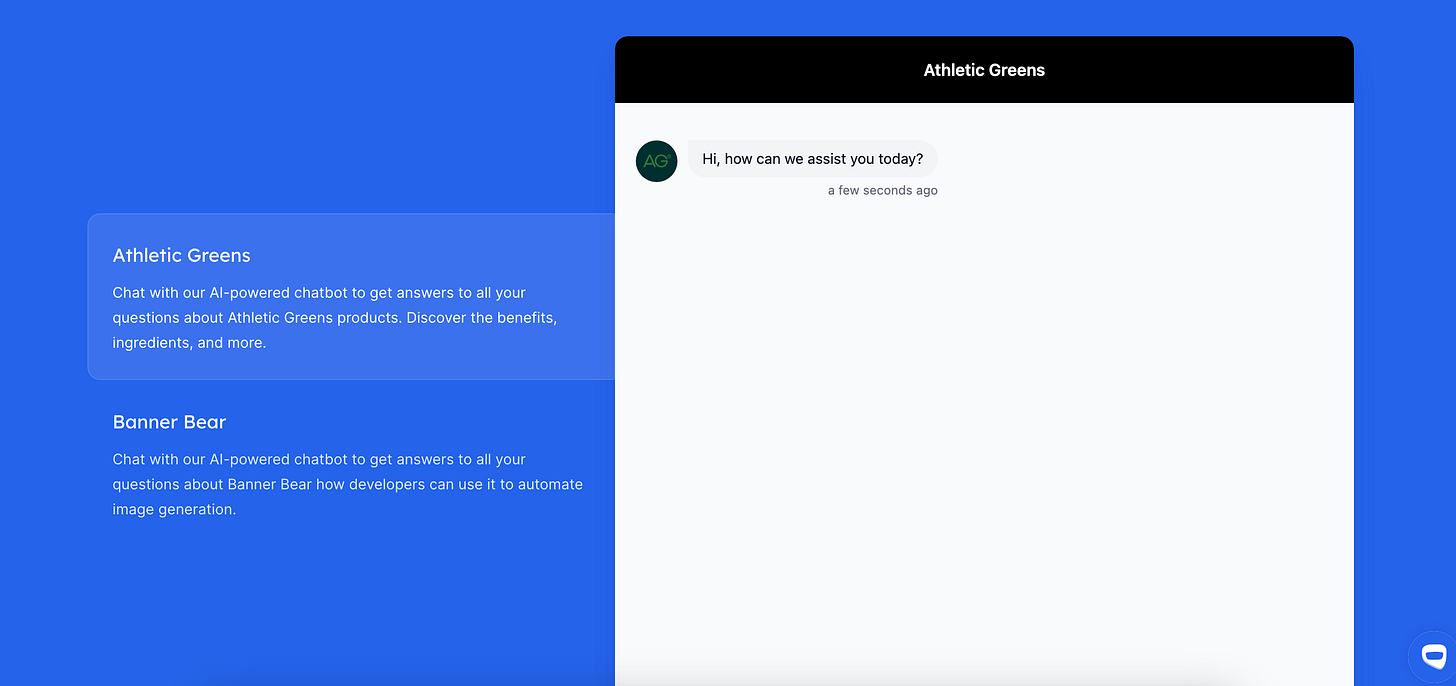Hello and welcome to our weekly digest!
So, shall we discuss the debate? Uh, no, let's skip this topic carefully and talk about something else. For example, the multiple news stories accumulated over the past few days. If you're an AI skeptic, a fan of learning unusual languages, a designer, or just love progress, I've got plenty of topics for you.
And if you want something a little more unusual, creepy and fun, follow this post:
This Creators’ AI Edition:
Featured Materials 🎟️
News of the week 🌍
Useful tools ⚒️
Weekly Guides 📕
AI Meme of the Week 🤡
AI Tweet of the Week 🐦
(Bonus) Materials 🎁
Featured Material 🎟️
Are We In a $600B AI Bubble?
Let's be honest. As often as we talk about the benefits of artificial intelligence and the scenarios for its application, this industry has long been associated with the term "bubble." Many believe that AI companies are raising unnecessarily high investments, using the prefix "AI" when it's not necessary, and actually fooling regular users. So, it seems we are getting closer to answering whether AI is a huge bubble.
Let's start a little bit from afar. In September 2023, Sequoia Capital partner Devin Cahn analyzed the AI infrastructure market and concluded a serious hole exists between investments in the sector and actual AI industry revenues. The analyst and investor estimated it at $125 billion at the time.
He also speculated about the sales of Nvidia processors and the ChatGPT, Midjourney, and Stable Diffusion platforms trained with the AI chips. He then asked a few essential questions:
What are all these GPUs being used for?
Who is the customer's customer?
How much value needs to be generated for this rapid investment rate to pay off?
You can read the methodology of the first calculations in this article.
Keep your mailbox updated with key knowledge & news from the AI industry
In short, the conclusion was that even at the most optimistic estimates for OpenAI, Google, Microsoft, Meta, and others, the difference between revenues and expenses is at least $125 billion. This was last fall.
Now, things have changed, and that's not good for the AI industry. According to Cahn, the actual revenue required to break even is $600 billion! And the $125 billion hole has now turned into a $500 billion hole. Again, these are the most optimistic estimates favoring AI companies and startups.
To summarize, Cahn emphasized concerns about the industry. He noted the lack of pricing power in GPU computing, which is becoming commoditized, the potential for capital incineration due to speculative investment, and the rapid depreciation of GPU hardware as newer, more efficient models are released.
All of this combined means that the market could face a lot of change and reassessments in the future. Not all companies (and therefore investors) will likely benefit from their developments. As for the outlook for AI itself, Cahn predicts new models will continue to create significant economic value.
He advised developers and companies to focus on delivering value to end users and remain calm during a heavy period of speculation.
I’m clearly not the right person to give decent advice (Especially next to the Sequoia). So I'll just agree with his, rather general, thesis: although the path of AI will be long and have ups and downs, it will probably pay off in the long run. I would once again recommend referring to the original article: it’s very clear.
News Of The Week 🌍
The Information: Google Works on a Competitor for Meta's Chatbots
Do you want to hang out with a chatbot friend? Google believes the answer is yes. According to The Information, the company is developing a platform to generate virtual celebrities and bots that users will create. Google believes that this solution will increase the demand for AI: people will not just ask chatbots questions but communicate like with real friends or idols.
This idea isn’t very new. We've already seen similar solutions from Meta and startup Character AI. Nevertheless, seeing an implementation from Google will be interesting. Although... given the company's recent AI advancements, it's getting a bit underwhelming. You can see what I'm talking about with this newsletter:
Mark Zuckerberg Spoke Out About Close-Source AI Competitors
The founder of Meta gave an interview to the YouTube channel Kallaway, in which he talked a lot about his attitude to AI. In particular, discussing the future of models, Zuckerberg said that there should not be "just one AI" in the world, and those who do not share their developments think they are "creating God."
Instead of this approach, Zuckerberg suggested betting on open-source models. That way, people can maximize the benefits from a variety of powerful models.
The podcast turned out great. You can watch it here:
Meta Starts Testing User-Created Chatbots on Instagram
Speaking of Google's plans for AI characters and Meta's attitude towards open source. Zuckerberg announced the other day that the company will start bringing AI characters developed by creators through Meta AI Studio to Instagram. All chatbots will be labeled separately as "AI" so users will only know they aren’t real people.
Meta's head also noted that the company has collaborated with various creators, including Wasted and Don Allen Stevenson III, to launch early versions of the first chatbots. Testing has already begun in the US and could soon be in other countries.
To be honest, I don't understand these kinds of products. Whenever I see a new AI tool, I think, "Okay, how can this improve my life?" If I find the answer right away, that's great. But that's not the case with these user-created chatbots.
Google Translate Gets Support for More Than 110 New Languages
It would seem that what does AI have to do with it? Ah, okay, it's pretty obvious. Google has applied AI to release the biggest update to Translate yet. The platform's new version includes 110 additional languages, including rare and complex ones like Cantonese, NKo, and Tamazight. The company relied on PaLM 2's LLM for this one.
As Google noted in its blog post, these new languages represent more than 614 million speakers, opening up translations to about 8% of the world's population. Some are major world languages with more than 100 million speakers. Others are spoken by small indigenous communities, and there are almost no native speakers, but they are leading active revitalization efforts.
This is exactly what I was talking about in the previous new. The case when AI brings real benefits and can make the lives of millions of people more interesting and better. I would like to see more news like this.
Sharing is caring! Refer someone who recently started a learning journey in AI. Make them more productive and earn rewards!
Figma Rolls Out Big Redesign with AI Tools
There have been very serious changes inside Figma. The platform has new features, a big redesign, and support for AI. The first two points aren't really important to us; I'll point out that it's huge: the company calls the update "the foundation for the next decade." You can see all the highlights on the Figma’s blog. In the meantime, we'll take a quick look at what's up with AI.
The bottom line is that Figma now has native support for generative AI. You can ask the tool to create a design for any project. During the presentation, CPO Yuhki Yamashita showed how AI generates the design of a restaurant application. The service created an app layout with menu lists, tab bars, and even buttons for delivery partners. The result could be edited either manually or with additional refinements.
Another great update. I'm not a designer and don't work with images much, but at some point in my life, Figma completely replaced Photoshop. Apparently, it will now be faster, more convenient, and more productive.
Amazon Investigates Perplexity AI Over Web Scraping Allegations
Amazon Web Services suspects Perplexity AI is violating the platform’s rules. Wired reporters confirmed that the company has launched an investigation. AWS is trying to find out whether the startup relies on content from sites that have been banned from access via the robot exclusion protocol. Perplexity will suffer serious reputational and possibly legal damage if the suspicions are confirmed.
That's something we definitely don't want. I really hope Perplexity abides by all of Amazon's rules and continues to grow at the same pace because it has been Google's strongest competitor (for me personally) in recent years.
Useful Tools ⚒️
Dappier 2.0 – Combat AI data scraping & get paid for your content fairly
Risk AI - Agent to automate manual risk management processes agents GPT-4
Briefy – Your AI knowledge assistant
Panem - AI-Powered SaaS Spend Management
Supportbot Pro – Custom ChatGPT chatbot for your website. This platform uses AI to provide instant customer support. Just add a bit of code to your website's head section, and Supportbot Pro will be ready to go. Trained on your company's data, including website content and PDFs, it can answer customer questions efficiently. Perhaps one of the most useful tools for those starting out in e-commerce.
Share this post with friends, especially those interested in AI stories!
Weekly Guides 📕
How to Make Eye-Catching YouTube Thumbnails Using AI
How to Use BEST NEW AI Video Generator KREA AI
A Beginner's Guide to 10 AI Frameworks and Libraries
How to Control Camera Motions in Luma Ai Video Generator
AI Meme Of The Week 🤡
AI Tweet Of The Week
And that... That's an interesting point.
(Bonus) Materials 🏆
My First Trip to Norway, With A.I. as a Guide
The Last 6 Decades of AI — and What Comes Next | Ray Kurzweil | TED
How AI Revolutionized Protein Science, but Didn’t End It
AI Frenzy Propels Stocks to Monster First Half
Corporate COOs are balancing AI’s efficiency gains with potential risks to employee morale
How was this week in AI? Share your content and ideas in the comments to this post so we can discuss or include them in the next edition!













